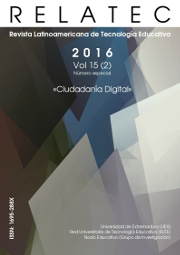Ranieri, M. (ed.) (2016). Populims, Media and Education. Challenging discrimination in contemporary digital societies. London: Routledge.
Keywords:
Alfabetización, Sociedad de la Información, Política educativa, Innovación educativa, Educación GlobalAbstract
Los autores y autoras del libro presentan los resultados de un amplio proyecto de investigación desarrollado en siete países (Francia, Bélgica, Italia, Eslovenia, Bulgaria, Reino Unido y Austria), denominado e-EAV (e-Engagement Against Violence, www.engagementproject.eu), y subvencionado por la DAPHNE 2012-2014, en el que además de los análisis situacionales, desarrollan estrategias metodológicas a través de programas educativos, para obtener información en torno a las cuestiones que a continuación se muestran. El foco de la investigación aborda cómo el populismo a través de los Medios virtuales (especialmente desde la derecha y extrema derecha), cala en los discursos políticos e ideológicos actuales, siendo la juventud un público especialmente susceptible a ello; además plantean de qué manera conductas, pensamientos y visiones discriminatorias, violentas y antidemocráticas se asientan en las conciencias a través del control de la Gran Red y sus continuos mensajes discriminatorios muy polarizados en los etno-nacionalismos.
Downloads
References
Dewey, J. (2004). La opinión pública y sus problemas. Madrid: Morata.
Verloo, M. (2005). Mainstreaming gender equality in europe: A critical frame analysis approach. Greek Review of Social Research, 117: 11-34.
Downloads
Published
Issue
Section
License
Authors who publish in this journal accept the following conditions:
1. The Author retains copyright in the article. Upon acceptance of the article, the author shall grant to the Publisher the right of first publication of the article. with the dcoument registered with the Creative Commons Attribution-NonCommercial-NoDerivative 4.0 International (CC BY-NC-ND) license, which allows to third parties to use what is published whenever they mention the authorship of the work and the first publication in this journal.
2. Authors can make other independent and additional contractual agreements for the non-exclusive distribution of the article published in this journal (eg, include it in an institutional repository or publish it in a book) provided they clearly indicate that the work was published for the first time in this journal.
3. Authors are allowed and recommended to publish their work on the Internet (for example on institutional or personal pages) before and during the review and publication process, as it can lead to productive exchanges and a greater and faster diffusion of published work (see The Effect of Open Access).









